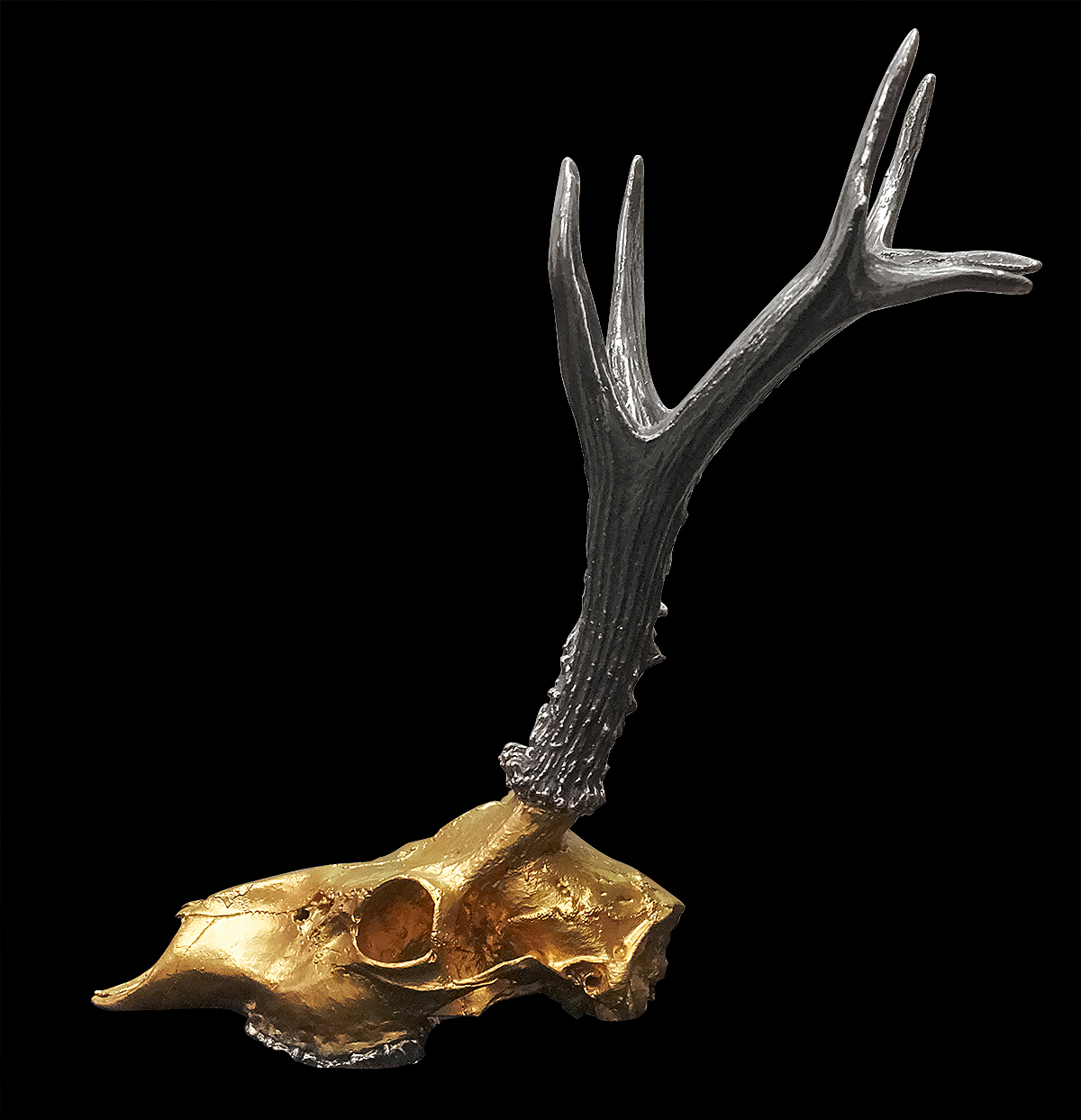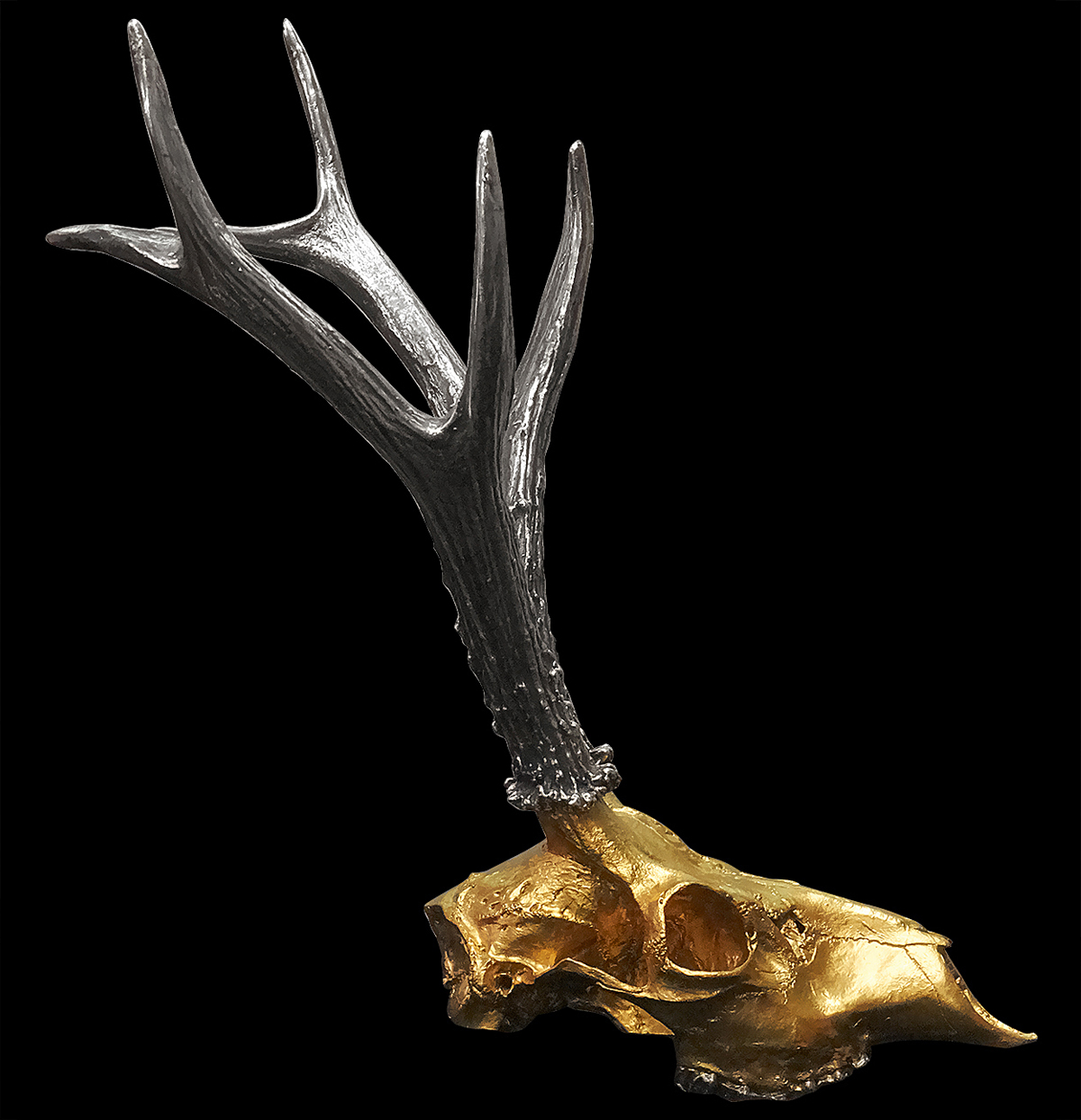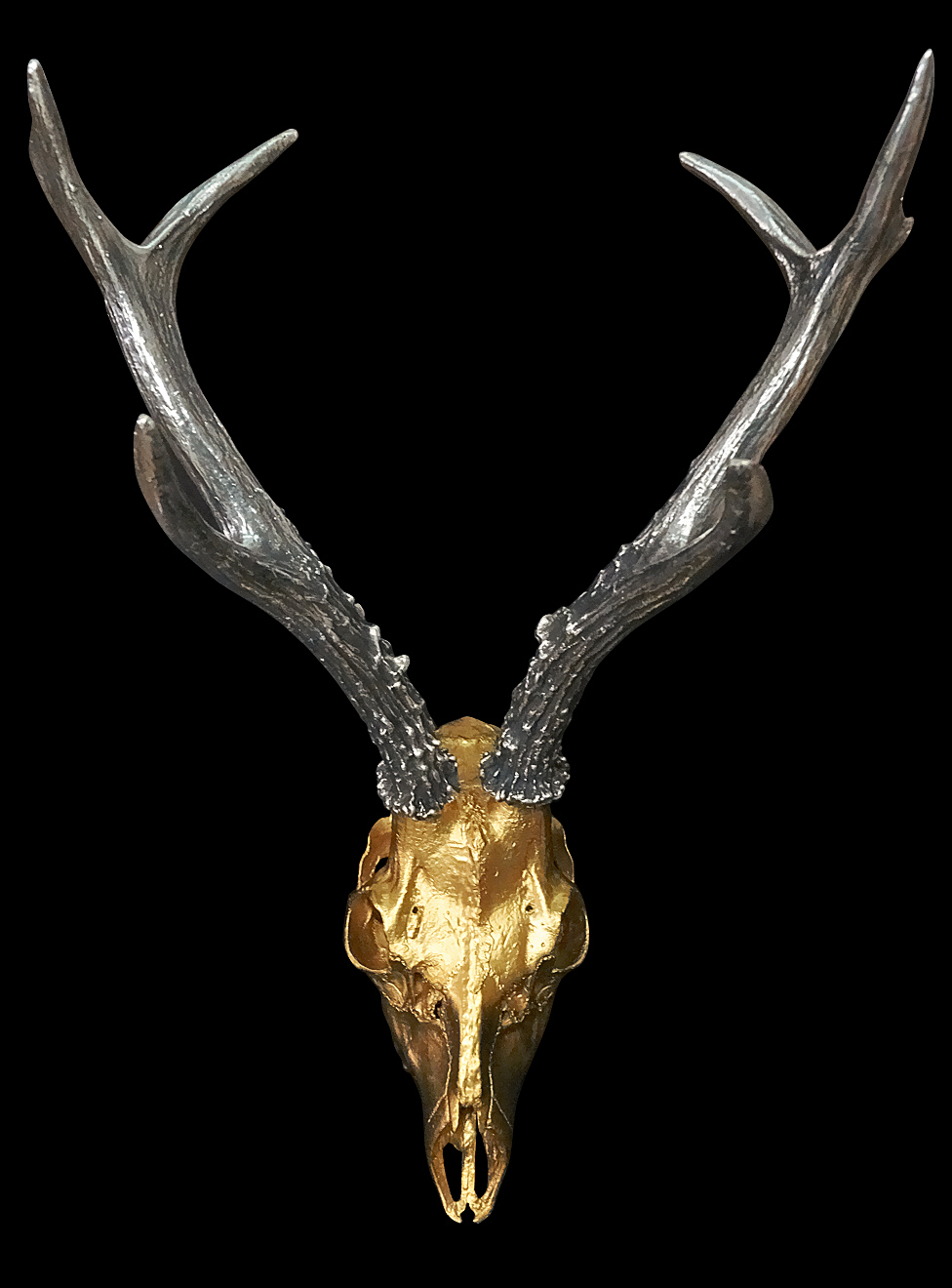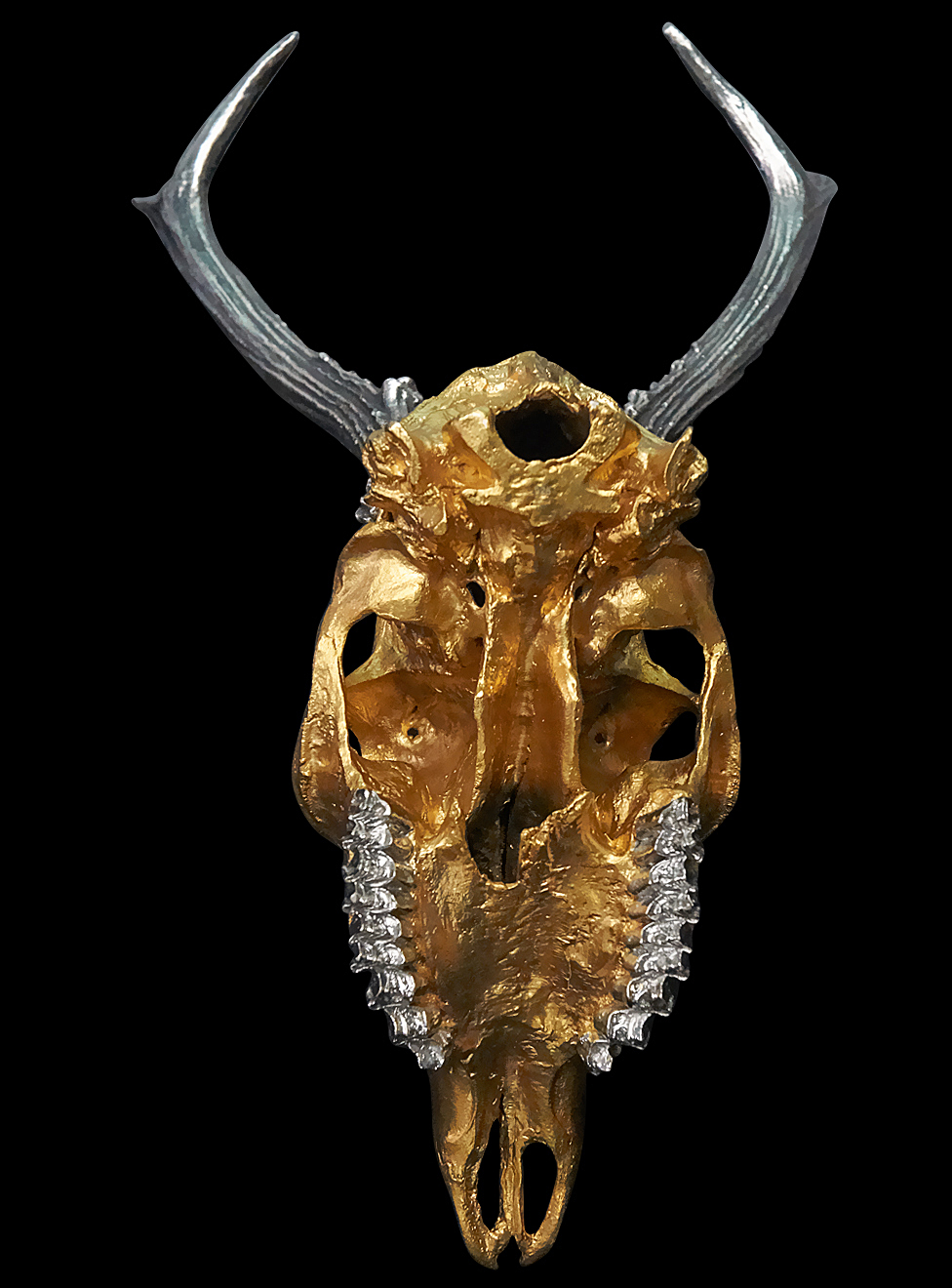

Sculpture «Siberian roe deer trophy»
Item code ...............................1.1.01.003.0005.4650
Number of sculptures in the series
.................................................................1
Material
...................................................Ag .925°
The weight
................................................429,91 г/g
Gold-plating of the cranial part of sculpture
...................................................Au .999°
Pedestal: Petrified wood
Number of sculptures in the series
.................................................................1
Material
...................................................Ag .925°
The weight
................................................429,91 г/g
Gold-plating of the cranial part of sculpture
...................................................Au .999°
Pedestal: Petrified wood
Item code ............................................................................ 1.1.01.003.0005.4650
Number of sculptures in the series ......................................................................... 1
Material ...................................................................................................... Ag .925°
The weight ................................................................................................ 429,91 г/g
Gold-plating of the cranial part of sculpture .......................................... Au .999°
Pedestal: Petrified wood
Number of sculptures in the series ......................................................................... 1
Material ...................................................................................................... Ag .925°
The weight ................................................................................................ 429,91 г/g
Gold-plating of the cranial part of sculpture .......................................... Au .999°
Pedestal: Petrified wood
Capreolus pygargus Pallas, 1771





























Attention!
Here are silver sculptures,
in some cases fragmentary covered
with multicolored gold and platinum.
There are no bones
or organic remains of mollusk shells
inside the items.
Here are silver sculptures,
in some cases fragmentary covered
with multicolored gold and platinum.
There are no bones
or organic remains of mollusk shells
inside the items.





























The reverse side of the sculpture is hidden from the viewer at the wall setting.
A mirror is placed under the item for the review. You can see the smallest details of the structure of the skull and the
dental apparatus of the upper jaw of the animal.
And it is not always clear which side of the item is more amazing!
A mirror is placed under the item for the review. You can see the smallest details of the structure of the skull and the
dental apparatus of the upper jaw of the animal.
And it is not always clear which side of the item is more amazing!


































Please leave your contact details. In the comments, you can indicate which method of communication and time is preferable for you.
Ask a Consultant




























Siberian roe deer trophies are also presented in other collections

























































Golden Safari presents a unique collection of trophy sculptures made of precious metals, the only one in the world.
The hunting trophy of ungulates - elk, deer, roe deer - are horns on the frontal bone or skull.
Hunting trophy of predatory animals - bear, wolf, lynx - full skull.
Capercaillie hunting trophy - a stuffed bird.
Hunting trophy of predatory animals - bear, wolf, lynx - full skull.
Capercaillie hunting trophy - a stuffed bird.
The cultural basis of the collections presented, is on the centuries-old
experience of mankind from the Holy Scripture, Scythian «animal style»,
Western European Renaissance, High Renaissance aesthetics of Leonardo
da Vinci (XV century), Northern (Flemish) Baroque to Art Nouveau «kink of
times» at the turn of the XIX–XX centuries and modern ethical standards
for displaying animal derivatives (hunting trophies).
experience of mankind from the Holy Scripture, Scythian «animal style»,
Western European Renaissance, High Renaissance aesthetics of Leonardo
da Vinci (XV century), Northern (Flemish) Baroque to Art Nouveau «kink of
times» at the turn of the XIX–XX centuries and modern ethical standards
for displaying animal derivatives (hunting trophies).






























© 2023 Golden Safari
NEWSLETTER
Cookies managing
Cookie Settings
Cookies necessary for the correct operation of the site are always enabled.
Other cookies are configurable.
Other cookies are configurable.


